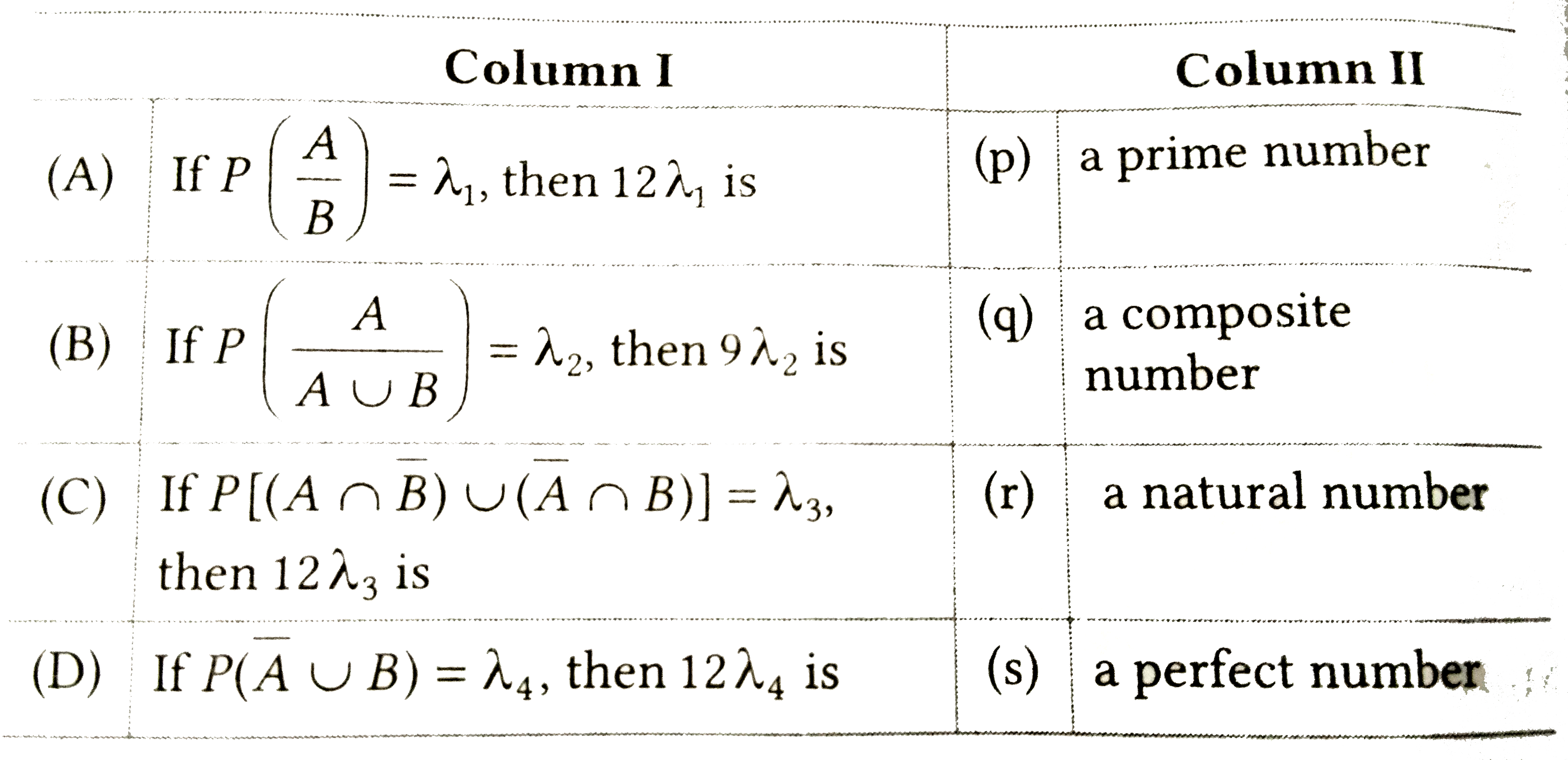If A and B are independent events such that P(A) = 0.3 and P(B) = 0 . 4 then P(¯¯¯A∪¯¯¯B) =
0.88
0.52
0.2
13
The correct Answer is:A
To solve the problem, we need to find P(¯A∪¯B) given that P(A)=0.3 and P(B)=0.4.
1. Understand the Complement Rule:
We know that the probability of the union of the complements of two events can be expressed as:
P(¯A∪¯B)=1−P(A∩B)
2. Calculate P(A∩B):
Since A and B are independent events, we can calculate the probability of their intersection as:
P(A∩B)=P(A)⋅P(B)
Substituting the given values:
P(A∩B)=0.3⋅0.4=0.12
3. Substitute into the Complement Formula:
Now we can substitute P(A∩B) back into the formula for P(¯A∪¯B):
P(¯A∪¯B)=1−P(A∩B)=1−0.12
4. Calculate the Final Probability:
P(¯A∪¯B)=1−0.12=0.88
Thus, the final answer is:
P(¯A∪¯B)=0.88
We know that the probability of the union of the complements of two events can be expressed as:
P(¯A∪¯B)=1−P(A∩B)
Since A and B are independent events, we can calculate the probability of their intersection as:
P(A∩B)=P(A)⋅P(B)
Substituting the given values:
P(A∩B)=0.3⋅0.4=0.12
Now we can substitute P(A∩B) back into the formula for P(¯A∪¯B):
P(¯A∪¯B)=1−P(A∩B)=1−0.12
P(¯A∪¯B)=1−0.12=0.88
P(¯A∪¯B)=0.88
Topper's Solved these Questions
- MODEL TEST PAPER - 8BOOK - ICSECHAPTER - MODEL TEST PAPER - 8EXERCISE - Section - A
19 Videos
- MODEL TEST PAPER - 8BOOK - ICSECHAPTER - MODEL TEST PAPER - 8EXERCISE - Section - B (In sub-parts (i) and (ii) choose the correct option and In sub-parts (iii) to (v) , answer the questions as instructed )
5 Videos
- MODEL TEST PAPER - 7BOOK - ICSECHAPTER - MODEL TEST PAPER - 7EXERCISE - Section - C
5 Videos
- MODEL TEST PAPER -1BOOK - ICSECHAPTER - MODEL TEST PAPER -1EXERCISE - Secton - C
11 Videos
Similar Questions
Knowledge Check
If A and B are two independent events such that P(A∪B)=0.8andP(A)=0.3 then P(B) is equal to: a) 2/3 b) 5/7 c) 1/8 d) 3/8
A23B57C18D38
If A and B are independent events such that P(A)=0.4 and P(B)=0.5, then find P(A∩B).
View SolutionIf AandB are two independent events such that P(B)=27,,P(A∪B)=0.8 then P(A)=
View SolutionA and B are two independent events such that P(A) = 0.8 and P(A∩→B)=0.3 Find P(B)
View SolutionIf A and B are two independent events, such that P(A)=13andP(B)=14.

View SolutionIf A and B are independent events such that P(A)>0,P(B)>0, then (a) 1−P(A/B) (b) 1−P(A/¯¯¯B) (c) 1−P(A∪B)P(B) (d) P(A)P(B)+P(¯¯¯A)P(B)=1
View SolutionIf A and B are two independent events such tat P(A)=0.3 and P(A∪B)=0.8 Find P(B).
View SolutionIf A and B are independent events such that P(A)=0.3 and P(B)=0.5, then find the values of:
(i) P(A∩B) (ii) P(A∪B)
(iii) P(A/B) (iv) P(B/A)
View Solution
